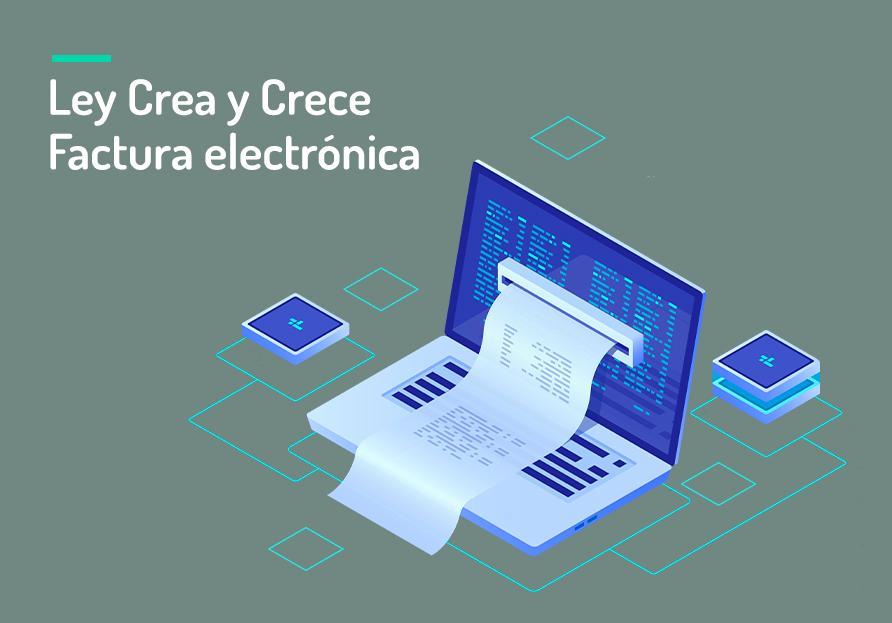
1. Current status of electronic invoicing in Spain
Currently, electronic invoicing between companies is voluntary except in relations with public administrations, where it has been mandatory since 2015. But this will change soon, as soon as the Crea y Crece bill approved by the Government on November 30, 2021 is endorsed. Spain thus joins the generalization of the use of electronic invoicing also in the B2B area and follows in the footsteps of other European countries such as Italy, France, Poland and Albania.
2. Law for the Creation and Growth of Companies
Electronic invoicing will be mandatory for Spanish companies, according to the draft Crea y Crece Law. The text provides for application deadlines that will begin to run from the date of its publication in the BOE (Official State Gazette). Companies and self-employed individuals with a turnover of more than 8 million euros per year will have 12 months to adapt to the regulation, while those that do not reach that amount will have up to 3 years to do so, with a gradual schedule.
The measure, together with the rest of those included in the bill, is intended to promote the digital transition of the Spanish business fabric and also to control and reduce delinquency in commercial transactions. The draft bill also states that it will be necessary for companies to use electronic invoicing in order to be eligible for subsidies and public contracts.
But it also proposes incentives and a set of aids, detailed in the Digital Toolkit Program. It is endowed with 3 billion euros in grants and integrated into the Digital Agenda 2025 and the Recovery, Transformation and Resilience Plan. These funds come from a European initiative designed to combat the economic and social impact of the Covid-19 pandemic.
2.1 Benefits of electronic invoicing
Electronic invoicing offers a number of benefits for companies that revert to the business fabric and society as a whole. To name just a few:
- Relevant contribution to the digitalization of relations between companies and also with customers and public administrations.
- Greater transparency.
- Reduction in fraud levels.
- Stop delinquency in commercial transactions.
- Lower transaction costs.
- Streamlining of collections and payments, with more precise and automated control.
2.2 Obligations for companies
But the generalization of electronic invoicing will also entail some obligations for companies and the self-employed. In the absence of the publication of the technical regulations governing the new electronic invoicing system, what is clear is that companies must issue and send electronic invoices with other companies and freelancers. In addition, they will be obliged to provide the recipients with systems for accessing, viewing, downloading and printing electronic invoices. On the other hand, a 4-year term will be established to maintain this access, even in the event that customers have ceased to be customers.
2.3 Start-up schedule
The preliminary draft foresees two major implementation deadlines:
- Companies and self-employed with more than 8 million euros of annual turnover: 12 months from the publication and endorsement of the law.
- Other companies and self-employed: up to 3 years, gradually.
3. We help you through our e-invoicing solution e-factura
e-Factura is our solution for the integral management of electronic invoicing processes, included in the Communicalia platform.
The application covers complete billing cycles for individuals (B2C), legal entities (B2B) and public administrations (B2G) through the FACe portal. And it does so with functionalities such as its own or delegated digital signature or the storage and custody features of CommStore, another of the modules that are part of Communicalia.
With no impact on the client companies’ systems, three of its features are:
- Self-developed and scalable, easy to implement and integrate with customer systems.
- With high availability infrastructure hosted in CPD-cloud with maximum security guarantees.
- With production center for the management and processing of paper invoices.
It is also an ally for compliance tasks. e-Factura has been designed under the concept of compliance by design and benefits from our certifications, approvals and official accreditations in terms of security and privacy of information. We will tell you about them below.
4. The importance of choosing a supplier that certifies the legal validity of the processes.
At MailTecK & Customer Comms we are a Trusted Electronic Service Provider qualified in qualified electronic delivery, according to the European eIDAS regulation. At this article We explain in a very extended way what this means, but in a very quick way, it makes us the “digital notary” of your communications. All data you send or receive through our applications have legal evidentiary value, for example, in court. This includes electronic invoices and evidence collected during communication.
In addition to this accreditation, granted by the Ministry of Economic Affairs and Digital Transformation, we also hold a number of ISO certifications. Two of the main ones are ISO 27001 for information security and ISO 27701 for information privacy. Both guarantee our information security standards and certify the legal validity of our processes.
ISO 27701, which enriches ISO 27001 and gives us a differential value in the market. It is an internationally recognized standard that provides guidance on the privacy process. This includes the processing of personal data and compliance with the GDPR, in our case, both in our own activities and in those we carry out for our customers.
These certifications, such as the Ministry’s accreditation, are reflected in the service we offer to all our clients through our technological solutions, such as e-Invoicing.
The Crea y Crece Law will completely change the relationship between companies and the self-employed with regard to their electronic invoices. And this will also affect private customers. At MailTecK & Customer Comms we want to help you comply with the standard and do it in an improved way. It is not just a matter of invoicing as required by law, but of doing so with specialized, effective solutions that will also enable you to achieve significant cost savings.